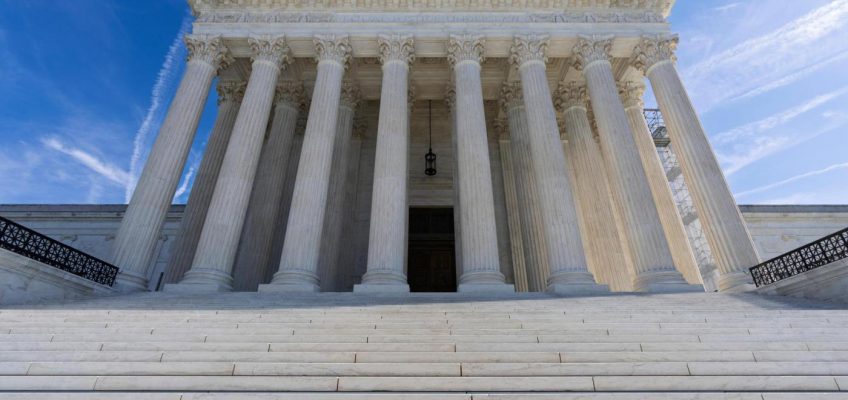By MARK SHERMAN, Associated Press
WASHINGTON (AP) — The Supreme Court on Monday allowed the Trump administration to strip legal protections from 350,000 Venezuelans, potentially exposing them to deportation.
Related Articles
States are telling sheriffs whether they can — or can’t — work with ICE
DHS asks for 20,000 National Guard troops for immigration roundups, Pentagon reviewing request
Supreme Court rejects Trump bid to resume quick deportations of Venezuelans under 18th century law
Trump suspends asylum system, leaving immigrants to face an uncertain future
Harvard researcher charged with trying to smuggle frog embryos to be transferred to Massachusetts
The court’s order, with only one noted dissent, puts on hold a ruling from a federal judge in San Francisco that kept in place Temporary Protected Status for the Venezuelans that would have otherwise expired last month. The justices provided no rationale, which is common in emergency appeals.
The status allows people already in the United States to live and work legally because their native countries are deemed unsafe for return due to natural disaster or civil strife.
A federal appeals court had earlier rejected the administration’s request to put the order on hold while the lawsuit continues.
The case is the latest in a string of emergency appeals President Donald Trump’s administration has made to the Supreme Court, many of them related to immigration. Last week, the government asked the court to allow it to end humanitarian parole for hundreds of thousands of immigrants from Cuba, Haiti, Nicaragua and Venezuela, setting them up for potential deportation as well.
The high court also has been involved in legal battles over Trump’s efforts to swiftly deport Venezuelans accused of being gang members to a prison in El Salvador under an 18th century wartime law called the Alien Enemies Act.
The administration has moved aggressively to withdraw various protections that have allowed immigrants to remain in the country, including ending the temporary protected status for a total of 600,000 Venezuelans and 500,000 Haitians. That status is granted in 18-month increments.
The protections had been set to expire April 7, but U.S. District Judge Edward Chen ordered a pause on those plans. He found that the expiration threatened to severely disrupt the lives of hundreds of thousands of people and could cost billions in lost economic activity.
Chen, who was appointed to the bench by Democratic President Barack Obama, found the government hadn’t shown any harm caused by keeping the program alive.
But Solicitor General D. John Sauer wrote on behalf of the administration that Chen’s order impermissibly interferes with the administration’s power over immigration and foreign affairs.
In addition, Sauer told the justices, people affected by ending the protected status might have other legal options to try to remain in the country because the “decision to terminate TPS is not equivalent to a final removal order.”
Congress created TPS in 1990 to prevent deportations to countries suffering from natural disasters or civil strife.
Justice Ketanji Brown Jackson said she would have rejected the administration’s emergency appeal.


Leave a Reply